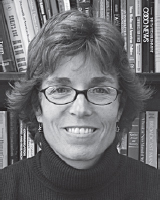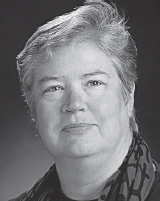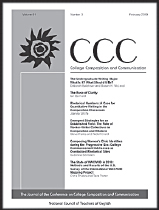Ann M. Penrose and Cheryl Geisler, Reading and Writing without Authority

Reading and Writing without Authority
ANN M. PENROSE

CHERYL GEISLER

Penrose, Ann M., and Cheryl Geisler. “Reading and Writing without Authority.” College Composition and Communication 45.4 (1994): 505–20. Print.
Framing the Reading
Ann Penrose is a professor of English at North Carolina State University, where she has taught since 1987. She earned a Ph.D. in Rhetoric from Carnegie Mellon in 1987, and she has written two books (Hearing Ourselves Think: Cognitive Research in the College Writing Classroom [1993] and, with Steven Katz, Writing in the Sciences: Exploring Conventions of Scientific Discourse [2004]) as well as numerous articles about writing. Cheryl Geisler also earned her Ph.D. at Carnegie Mellon (in 1986) and is now head of the Department of Language, Literature, and Communication and joint Professor of Rhetoric and Information Technology at Rensselaer Polytechnic Institute. Like Penrose, she has written several books (with Davida Charney and others, Having Your Say [2005]; Analyzing Streams of Language: Twelve Steps to the Systematic Coding of Text, Talk and Other Verbal Data [2003]; Academic Literacy and the Nature of Expertise: Reading, Writing, and Knowing in Academic Philosophy [1994]; and with David Kaufer and Christine Neuwirth, Arguing from Sources: Exploring Issues through Reading and Writing [1989]).

In the following article Penrose and Geisler examine how the text of a first-year student (Janet) differs from a text on the same subject written by a doctoral student (Roger). Previous research has suggested that students like Janet simply need to gain more knowledge about a topic in order to write about it with more authority. In this study, Penrose and Geisler found that, while it would have been helpful for Janet to know more about the topic, her writing lacked authority for other reasons. Specifically, they argue that Janet and Roger had very different understandings of what knowledge is and how it is constructed. As such, their reading continues the theme of Chapter 3 on rhetorical theory in looking at how writers and readers make up their minds, and change them.